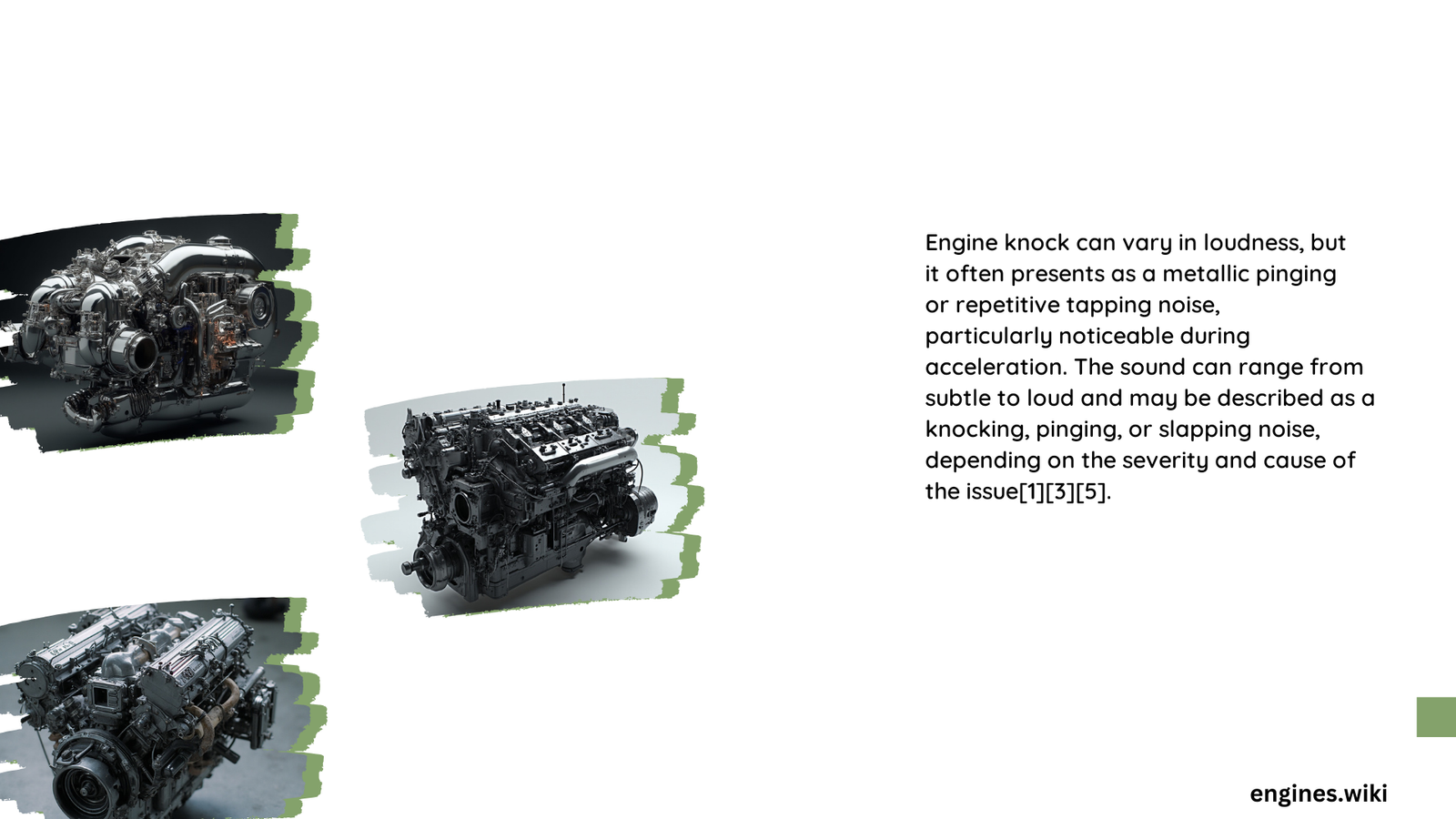Engine knock represents a critical acoustic phenomenon in automotive systems, characterized by unexpected and potentially destructive sound frequencies that signal underlying mechanical complications. While not consistently loud in absolute decibel measurements, engine knock produces distinctive vibrations and audible indicators that can range from subtle pinging to aggressive metallic sounds, typically occurring between 5-7 kHz frequency range. Understanding these sonic signatures is crucial for preventing potential engine damage and maintaining optimal vehicle performance.
What Determines the Loudness of Engine Knock?
How Loud Can Engine Knock Actually Be?
Engine knock’s perceived loudness varies significantly based on multiple factors:
| Noise Factor | Decibel Range | Potential Impact |
|---|---|---|
| Normal Engine Noise | 70-120 dB | Baseline Reference |
| Knock Frequency | 5-7 kHz | Distinct Vibration |
| Mechanical Severity | Variable | Potential Damage |
Acoustic Characteristics of Engine Knock
- Frequency-Based Detection: Knock sensors identify specific vibrational patterns
- Sound Intensity: Not consistently measurable in standard decibel scales
- Mechanical Indicators: Correlates with internal engine stress
What Causes Loud Engine Knock?
Primary contributors to engine knock loudness include:
- Fuel Quality Issues
- Low octane fuel
- Improper fuel-air mixture
-
Premature combustion
-
Mechanical Complications
- Worn piston rings
- Incorrect ignition timing
- Compression system failures
How Do Professionals Diagnose Engine Knock?
Diagnostic processes involve:
- Comprehensive compression tests
- Knock sensor data analysis
- Full throttle performance evaluations
- Detailed mechanical inspections
What Are Effective Solutions for Reducing Engine Knock?
Repair strategies depend on root cause:
| Repair Type | Cost Range | Estimated Duration |
|---|---|---|
| Fuel System Cleaning | $100-$300 | 1-2 hours |
| Ignition Timing Adjustment | $50-$200 | 1-2 hours |
| Mechanical Component Replacement | $500-$2,000 | Several days |
Can Engine Knock Be Prevented?
Preventative measures include:
- Using recommended octane-rated fuel
- Regular maintenance
- Timely mechanical inspections
- Addressing warning signs immediately
Key Takeaways

- Engine knock is not consistently “loud” but produces distinctive vibrational signatures
- Multiple mechanical and fuel-related factors contribute to knock intensity
- Professional diagnosis is crucial for accurate resolution
- Preventative maintenance significantly reduces knock occurrence
Pro Tip: Never ignore persistent engine knock, as it can indicate serious mechanical issues requiring immediate attention.
Technical Insights
Engine knock represents a complex acoustic phenomenon where premature fuel combustion creates unexpected vibrational energy. While not always loud in traditional decibel measurements, its frequency and intensity can signal potential systemic failures within the engine’s combustion chamber.
Reference:
– https://support.haltech.com/portal/en/kb/articles/what-is-knock-and-why-you-should-control-it
– https://www.newcelica.org/threads/how-to-determine-knock-threshold.247596/
– https://www.syvecs.com/forum/viewtopic.php?t=317
